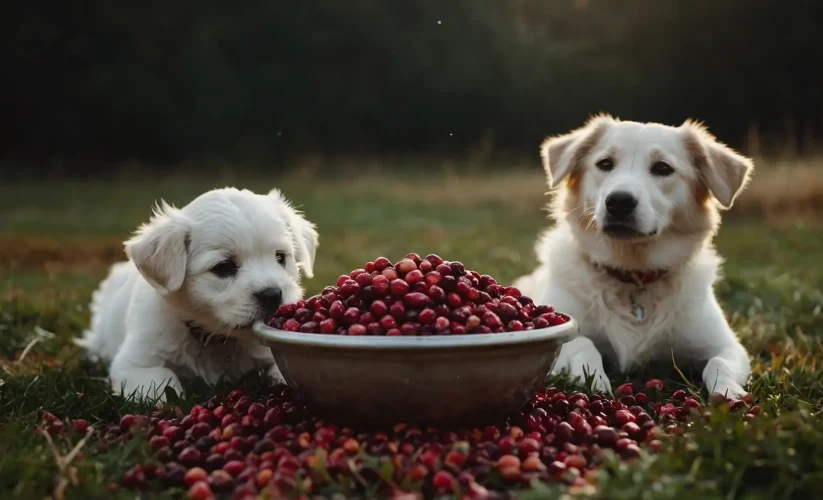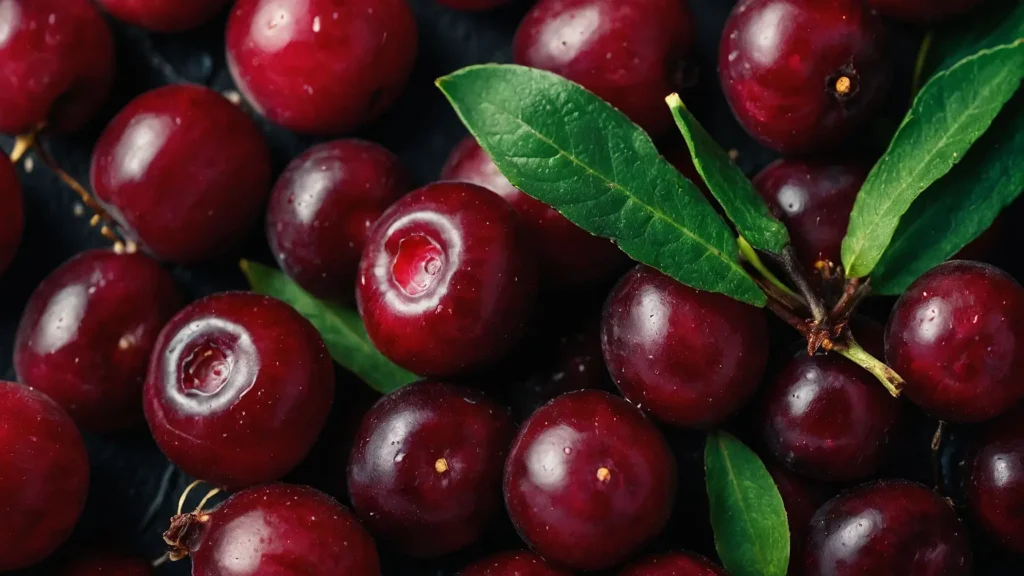Can dogs eat Cranberries?

As dog owners, we’re constantly navigating the do’s and don’ts of dog nutrition, aiming to provide our furry companions with both a delicious and nutritious diet. One question that often surfaces is, “Can dogs eat cranberries?” This query is especially relevant considering cranberries have garnered attention for their health benefits in humans, but does this translate to canines? In this comprehensive guide, we delve into the world of cranberries and their impact on dog health. We’ll explore the benefits and potential risks, compare them with other fruits like apples, avocados, strawberries, and bananas, and offer final thoughts to guide you in making informed dietary choices for your beloved pet.
Is Cranberries Good for Dogs?
Cranberries are small, tart fruits known for their high nutrient content and antioxidant properties. When considering them for dogs, it’s essential to understand their benefits. Firstly, cranberries are a great source of vitamins C, E, and K, and they’re rich in fiber, which can aid in digestion. They also contain manganese, which supports bone health and energy production. Another significant benefit is their role in urinary tract health; the compounds in cranberries can prevent the adhesion of bacteria to the urinary tract walls, potentially reducing the risk of urinary tract infections.
However, moderation is key. The introduction of cranberries into your dog’s diet should be gradual and in small quantities. Fresh or dried cranberries can be a healthy snack, but they must be unsweetened and free of any additives. It’s also worth noting that while cranberries offer these health benefits, they should not replace a portion of your dog’s regular diet but rather complement it.
Is Cranberries Bad for Dogs?
Despite their benefits, cranberries can pose risks if not administered correctly. The primary concern with cranberries — like with any new food introduced to your dog’s diet — is the potential for gastrointestinal upset. Some dogs might experience diarrhea or vomiting if they consume too many cranberries. Additionally, cranberry products, such as cranberry juice or sauce, often contain added sugars or other ingredients that can be harmful to dogs, so these should be avoided.

There’s also a concern with dried cranberries, which are sometimes mixed with raisins or other dried fruits that could be toxic to dogs. As such, it’s crucial to ensure that any cranberries your dog consumes are pure and not part of a mix that could contain harmful elements. Furthermore, while the risk is low, excessively high amounts of cranberries could lead to kidney stones due to their high oxalate content.
Are Other Fruits Like Safe For Dogs?
Expanding your dog’s diet to include fruits can offer variety and additional nutrients, but it’s important to know which are safe. Apples, for example, are excellent for dogs when served in moderation, providing fiber, vitamins A and C, and helping to clean residue off a dog’s teeth. However, the core and seeds should be removed due to cyanide concerns.
Avocado, on the other hand, is controversial. It contains persin, a substance that can be toxic to dogs in large amounts. While a small amount of avocado flesh may not harm your dog, it’s generally advised to avoid it due to the risk of persin toxicity and the potential choking hazard posed by the pit.
Strawberries are a safe and healthy treat for dogs, offering fiber, vitamins, and enzymes that can help whiten your dog’s teeth. They should be given in moderation due to their sugar content.
Bananas are also safe for dogs and can be a low-calorie, high-nutrient treat. They’re high in vitamins, biotin, fiber, and copper but should be given sparingly due to their high sugar content.
Final Thoughts
Incorporating fruits like cranberries into your dog’s diet can offer health benefits, but it’s crucial to approach this with care and knowledge. Cranberries, in moderation, can be a healthy snack for your dog, but it’s important to be mindful of the potential risks and to introduce them slowly. As with any dietary change, observing your dog’s reaction to new foods is key to ensuring their health and well-being.
The same principle applies when considering other fruits for your dog. While many can provide nutritional benefits, they each come with their own set of considerations. By educating yourself on the specifics of each fruit, you can make informed decisions that contribute to a balanced and healthy diet for your dog.
Ultimately, the goal is to support our dogs’ health with a well-rounded diet that includes a variety of nutrients. Consultation with a veterinarian can provide personalized advice tailored to your dog’s specific dietary needs, ensuring they receive the best possible care. Remember, while fruits can complement their diet, they should not replace the foundational nutrition that a high-quality dog food provides.










